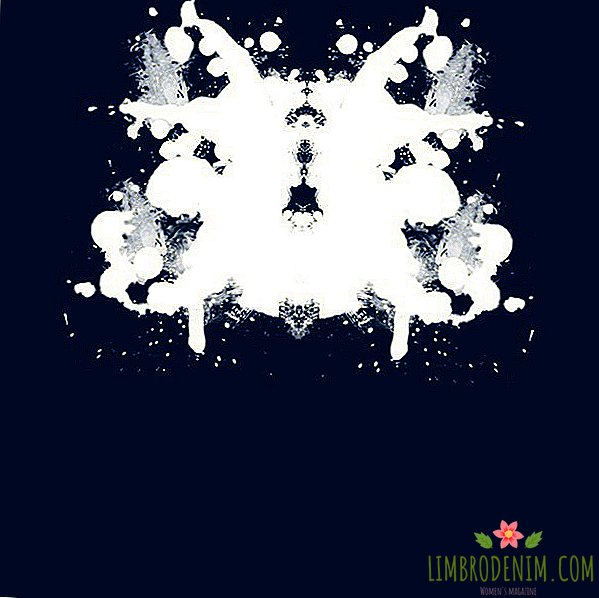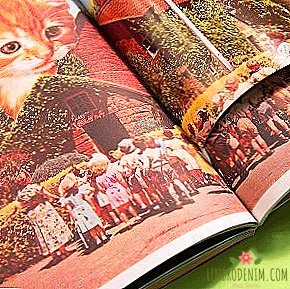“In prison you will always be referred to“ you ”": Svetlana Bakhmina about life in the women's colony
Svetlana Bakhmina, ex-lawyer of YUKOS and defendant of the case against oil company, was in the Mordovian colony number 14 in 2004 and spent there five years. After her release, she returned to legal practice and established the “Extend a Hand” Foundation for Women Prisoners. Specially for Wonderzine, Svetlana spoke about life in women's colonies, the relationship between women prisoners and the specifics of their rehabilitation after release.

"In prison it is difficult to maintain self-esteem"
Before getting to the colony, I read about prisons only in fiction. In the same Solzhenitsyn, for example. These books were, of course, not about Russian, but about Soviet prisons, about the Gulag. I did not think that someday I would encounter a similar world.
The conditions of detention in the colonies have changed greatly since then: there is almost no more that Solzhenitsyn described. Although I happened to be in one of the transfer prisons where you had to sleep on the floor - such large double-decker beds covered with wooden flooring. They are literally sleeping alongside several people. With me it was still. Now, I hope, this is no longer.
What really survived from Soviet times and is unlikely to disappear soon is the attitude towards prisoners in prisons. In the Russian colonies is very difficult to maintain self-esteem. In a person they see an object, a powerless creature, and not a person, and this attitude is manifested in everything from the structure of everyday life to the treatment of prisoners. In prison, everyone will turn to you. I remember that out of habit I tried to turn to “you” both to prisoners and to prison workers. Women prisoners are alarmed, they saw in this some kind of trick, so not used to such treatment.
In the Mordovian colony I was assigned to the fifth squad. There were ninety people in the detachment, and all lived in two large rooms. In such conditions it is very important to maintain personal hygiene, so that you can somehow coexist. At the same time watch yourself in prison is quite difficult. We had a bath day once a week - and it was really a “bath”, we went to such a large common room, where we washed with the help of gangs. Showers and the shower itself was not. In many colonies there is no hot water. When you find yourself in such conditions, you begin to understand how important everyday things seem to be: a good toilet, a daily shower. We perceive them as something that goes without saying in the twenty-first century, but this is not at all true if you are in a colony.
To survive, women in the colonies form a kind of "family". There are families in which sexual relations are established between women. There are also "families" based rather on greed.
Even in the colonies of an acute lack of personal hygiene. Some uniforms will give, feed feed, but with soap, toothpaste and pads - trouble. They are issued, but very, very few. To get all this, it is necessary that you are well "heated" in the wild, that is, that there were loved ones who are ready to come to you and bring or send what is necessary. Another option is to “earn” these things by exchanging them for some kind of work or small services if there is nothing valuable. Someone washes, someone takes himself extra duty. The most important currency in prisons is cigarettes. And the terrible quality, I did not know what it was possible to smoke: "Java", "Prima". I did not smoke in prison, I do not smoke even now. But those who smoke are hard and cigarettes are in high gear there. Anything can be exchanged for cigarettes.
To survive, women in the colonies form a kind of "family". In families, they help each other in everyday life: to wash, cook. In addition, families are needed to share personal information with anyone, because prison is very difficult psychologically. There are families in which sexual relations are established between women. I noticed that many prisoners who enter into such a relationship are not originally homosexual. After the colony, they return to their normal life, for example, to their husbands. There are also "families" based rather on greed: when a poor prisoner combines with a richer one, with one that is well warmed in the wild. Sometimes this is necessary to survive. Those who have no support in the wild have a very hard time.
In conclusion, my daughter was born. I decided that she should grow up with relatives, and not in the child’s home at the colony. In the Russian colonies, if a woman has a child, then he stays with her only for a very short time, and then he is sent to the child’s home, and he sees his mother no more than two hours a day. I thought it was better that the child grow up in a family, even without me. Now there are more and more colonies, where women are given the opportunity to live with their children. I think this is very important. But so far it is available only a small part of the imprisoned mothers with children.
"In addition to work, occupy yourself with nothing"
Some necessary things can be bought with money earned in production. I was lucky to be in a colony, where you can work: I got into the sewing workshop. For many, this is a great help. In the colonies, where there is no work (and such exist), more difficult. Not only because it is impossible to earn at least the smallest things. The fact is that in prison, apart from work, there is nothing to occupy. We felt it very much during the weekend. In my free time I usually read if there was such an opportunity, but few of the prisoners liked to read.
Other available entertainment is TV. He was in a separate room, and, of course, it was impossible to spend the whole day there. In addition, no one could decide for himself what to watch, because the TV was one for dozens of women. And there were no more options. I remember that at the weekend there were especially many squabbles in the colony, it came to a fight.
In the female colonies there is no such rigid system of "concepts" as in the male ones. There is no clear division into thieves and ordinary prisoners. Although there are also so-called short ones - recidivists. They are trying to use criminal slang to behave accordingly. Now, as far as I know, such prisoners are kept in separate colonies, which, in my opinion, is correct.
We worked in our workshop from 8:00 to 16:00. Rise at 6:00, hang out at 22:00. Often we were sent for processing, voluntary-compulsory. They lasted four hours, at least eight hours. Work conveyor: all together we sew, for example, uniforms of military trousers or jacket. One sews a pocket, the second - a collar, the third zipper. The peculiarity of such work is that if one prisoner is slow, if it does not work, then it delays the whole workshop. And the shop has a daily plan for the volume of products, and it must be fulfilled. It turns out such a circular responsibility, and those who can not sew, it is difficult. Thank God, I sewed well: yet I am a Soviet person, and in the USSR it was necessary to be able to do this in order to have something to wear. I learned to sew at school. Therefore, at work I was not so difficult.
In addition to the initiative, in the colony one could get a minimal education - for example, to finish school. For me it was a discovery: with me sat women who did not have even nine classes behind them
The salary in the colonies at the time of my stay there was two hundred rubles a month. On hand this money does not give. We had a ledger in the colony (ledger. - Approx. ed.), where they wrote off by hand: "Someone earned so much." Purely symbolic. It was possible to spend this money in a stall with IR. There you could buy soap, toothpaste, condensed milk, stew, this kind of thing. It is clear that two hundred rubles is not enough for much.
Russian colonies are called "correctional". The name itself implies the possibility of "correction" - parole. But for this prisoner you need to prove that she was "corrected". And this includes not only the observance, as we called it, "forms, norms, and regimes." In addition to getting up on time, going to bed, greeting each passing employee in time and not receiving comments from him, you need to participate in a kind of amateur art activities. In prisons regularly hold some kind of contests, for example, all sorts of "Miss IC".
In the colonies they are treated differently. Of course, when you are fifty and need to do something that you don’t really know how to do, it seems at least strange. But some participate with pleasure, for them it is an opportunity to distract. I remember we had a competition in the spirit of "What? Where? When?". Taking into account the horizons of those who were in the colony, it looked a bit ridiculous. I also participated in some theatrical productions, sometimes I used organizational skills. I did not feel much joy, but I had to do this as well.
In addition to the initiative, in the colony one could get a minimal education - for example, to finish school. For me it was a discovery: with me sat women who did not have even nine classes behind them. One Roma girl simply could not read and write. At school at a colony passed the program in a truncated form, but all the same it, of course, the blessing. In addition, with the colonies there are institutions, correspondence programs. If desired, you can get such a quasi-formation. I do not know anything about its quality, but in any case it will not be worse for sure.

"No at least minimal assistance for the first time"
Of course, my case can hardly be called typical, and me - the usual prisoner. I was educated before prison, I worked as a lawyer. After the colony, I continued to practice law. I was where and to whom to return. And there are those who return and do not find their homes: either they copied it to someone, or their relatives drank it. Sometimes they find themselves physically no place to live - and yet many women return with their children.
Even if a woman has housing, the main problem remains - employment. Now in all working questionnaires there is a question about criminal record: employers do not want to get involved with those who sat. Unfortunately, the state does not help in this former prisoner. Charitable funds and activists help, but it is always difficult: any rehabilitation programs require a lot of money.
When a woman gets out of prison, she gets about seven hundred and fifty rubles for a journey - that's all. No at least minimal assistance for the first time, no special benefits. If any state benefits are granted to a woman and her child, they should be drawn up, and this takes time and money - at least on the same road to this or that department. Often, ex-prisoners have problems with documents, registration, they need to collect all sorts of certificates - for example, to send a child to kindergarten and go to work.
When I was still in prison, I thought a lot about how you can help the people who were there with me. How to solve at least some of the individual problems of women's prisons and those of them who are released. Perhaps it was the desire to translate their negative experience into something good. The most difficult was to find like-minded people. For a long time after the release, I felt that I was not ready, that there was no reliable person around with whom I wanted to implement my ideas. And then we got into conversation with Valery Balikoyev - he once organized a collection of signatures for my release, although we didn’t even know each other - and it turned out that he had the same thoughts in his head. After being released from prison, we created the Stretch Hand Fund, which has been operating for more than four years.
Some women have been sitting for years and do not even imagine how life changed in the wild, for example, laws. They do not know how to behave and protect themselves and their child.
In the fund, we implement several programs for different wards and different cases. We collect travel kits for freed women and children's kits for expectant mothers from among the prisoners. We help the children's homes in the colonies: we build playgrounds for them, we buy everything we need, we bring doctors who examine children. We work with ICs throughout Russia: Mordovia, Khabarovsk Territory, Kemerovo Region, Rostov, Sverdlovsk. We do all this with donations, sometimes we hold charity events, such as creative evenings. Lyudmila Ulitskaya, Lev Rubinstein, Igor Guberman, Andrey Zvyagintsev, Alexey Motorov and Viktor Shenderovich came to speak to us.
One of our new programs, Revival, was created especially for women who leave the colony. For those who are just preparing to go out, we hold master classes in legal and financial literacy, training in psychology. Some women have been sitting for years and do not even imagine how life changed in the wild, for example, laws. They do not know how to behave and protect themselves and their child. When we are free, we help to cope with the most difficult first months at large and bring our life in order. If a person has nowhere to go, contact the crisis center and ask to shelter our ward. We cooperate with several such centers.
We had a case where mother and child returned from the colony, and the room that belonged to her was completely useless. Apparently, in the absence of the hostess, the homeless slept there. No windows, no doors, fungus everywhere. It is impossible to live, and even more so with a one-year-old child. We started an urgent fundraising, bought building materials for repair. She did something herself, in some ways we helped her. There are also such emergency cases.
Our other ward was released from prison with a child, he was eight or ten months old. It seems that in the Krasnodar region it was. We met her with the Road Kit program, handed her a backpack with everything needed for mother and baby: diapers, a bottle, a toy, paid for by phone. The girl was called, it seems, Olesya. Olesya was escorted to the train, she returned home - and her mother would not let her into the apartment. In addition to mom there was nowhere to go. Olesya called us in horror: we were the only ones who could help her.
We bought medicines for Olesya's child, gave her money so that she could issue the necessary papers: she needed to make documents for the child and register with the pension fund in order to receive child allowance. She stayed with her neighbor, a good old woman. Then we started negotiations with mom. They had some kind of personal conflict, a difficult relationship: Olesya was still not sugar. We had to play the role of psychologists, which we did not plan to do at all. As a result, somehow managed to agree. Olesya promised to behave herself, and her mother gave up. But this happened only after a week of intense struggle. And we encounter such non-standard tasks quite often.
Photo: Foundation "Extend a Hand"





